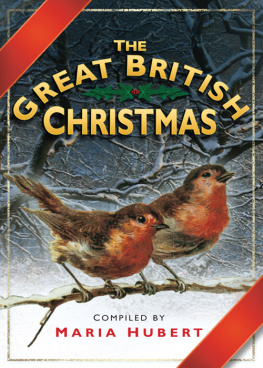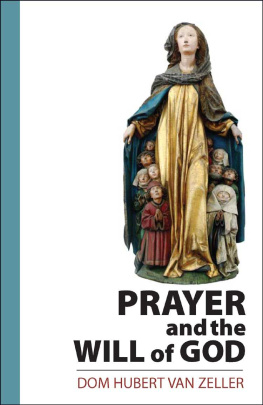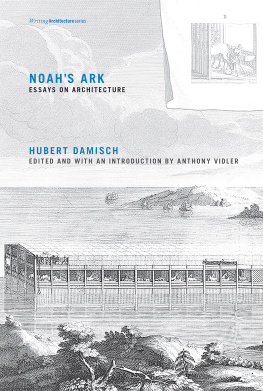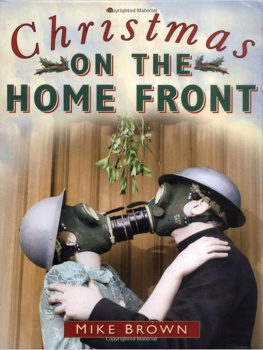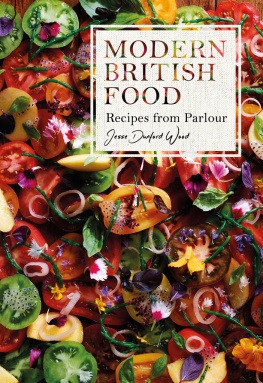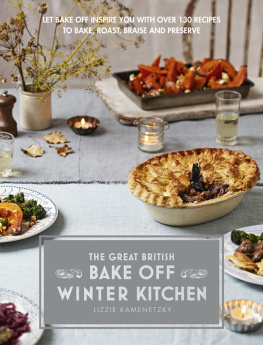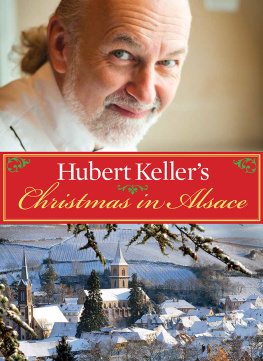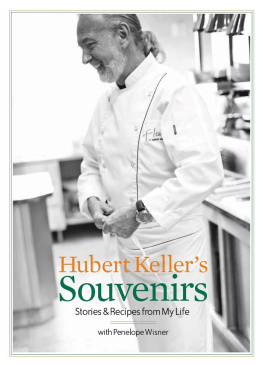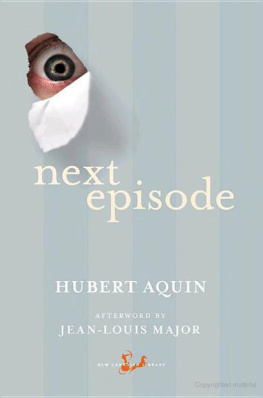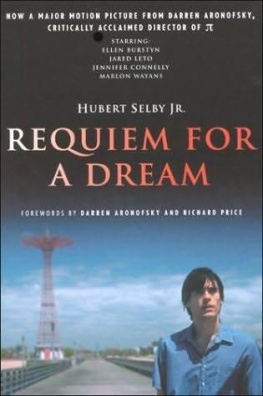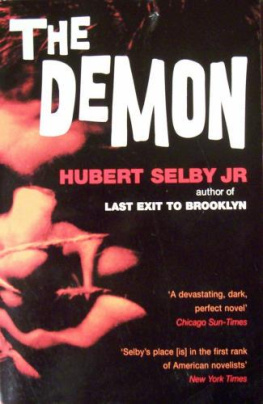Maria Hubert - The Great British Christmas
Here you can read online Maria Hubert - The Great British Christmas full text of the book (entire story) in english for free. Download pdf and epub, get meaning, cover and reviews about this ebook. year: 2011, publisher: The History Press, genre: Detective and thriller. Description of the work, (preface) as well as reviews are available. Best literature library LitArk.com created for fans of good reading and offers a wide selection of genres:
Romance novel
Science fiction
Adventure
Detective
Science
History
Home and family
Prose
Art
Politics
Computer
Non-fiction
Religion
Business
Children
Humor
Choose a favorite category and find really read worthwhile books. Enjoy immersion in the world of imagination, feel the emotions of the characters or learn something new for yourself, make an fascinating discovery.
- Book:The Great British Christmas
- Author:
- Publisher:The History Press
- Genre:
- Year:2011
- Rating:3 / 5
- Favourites:Add to favourites
- Your mark:
- 60
- 1
- 2
- 3
- 4
- 5
The Great British Christmas: summary, description and annotation
We offer to read an annotation, description, summary or preface (depends on what the author of the book "The Great British Christmas" wrote himself). If you haven't found the necessary information about the book — write in the comments, we will try to find it.
The Great British Christmas — read online for free the complete book (whole text) full work
Below is the text of the book, divided by pages. System saving the place of the last page read, allows you to conveniently read the book "The Great British Christmas" online for free, without having to search again every time where you left off. Put a bookmark, and you can go to the page where you finished reading at any time.
Font size:
Interval:
Bookmark:
Maria Hubert
William Makepeace Thackeray
Sir Thomas Malory
Rudyard Kipling
R. Acton
Anon A recipe for honeyed wine
From a seventeenth-century broadsheet by Simon Mincd Pye
Samuel Pepys, John Evelyn and others
From the Spectator, 1712
From the Spectator, 1711
D.B. Wyndham Lewis
Charles Dickens
Maria Hubert and Michael Harrison
From The Memoirs of a London Doll
Richard Henry Horne
From the Illustrated London News , 1848
From Mrs Beetons Book of Household Management , 1853
A Sharp Old File, 1853
Edmund Hollier
The Court Chef, Alexis Soyer, 1861
Anon
From Thomas Hardys The Return of the Native
From Christmas in Cornwall Sixty Years Ago
Mrs John Bonham
Andrew Lang
From Sketches by Boz, Charles Dickens
Recipes for sweets from Home Notes, 1898
Rudyard Kipling
Ruth and Celia Duffin
Glyn Griffiths
Cyril Palmer
Iris Cannon
Maria Hubert
William Makepeace Thackeray
I am grateful to the many publishers, editors and authors who have given permission for their work to be used, and to a few who are no longer around or cannot be traced. I hope that you will take the inclusion of your work as the compliment intended. I particularly thank the publishers of the works listed in the bibliography for permission to reproduce them or extracts from them.
Original research, translations and presentation of historical facts are by Maria Hubert. All unacknowledged material is taken from the Christmas Archives Research Library. All illustrations are reproduced courtesy of the Christmas Archives Picture Library.
The original artwork for Christmas Eve and Eddis Christmas are courtesy of Jung-Sook Nam Hubert.
I especially acknowledge the former Tom Smith Cracker Company, Norwich (particularly the late Mr Varney), for the story about the origins of the Christmas cracker. I also thank my husband Andrew for all his work with the scanner and computer. And to everyone who has helped me on this series of books family, friends, strangers who became friends, editorial staff at Sutton Publishing, artists and authors who permitted use of their work, and the many librarians and archivists my most grateful thanks.
Maria Hubert
For many, the British Christmas is the epitome of Christmas. Visitors travel from all over the world just to be in Britain and to be able to appreciate the atmosphere of a British Christmas.
Many of the innovations of Christmas that are enjoyed around the world today originated in Britain. The Christmas card, invented by Henry Cole and his friend the engraver John Horsley in 1843, was to become the means in a great many countries of showing distant friends that they were remembered. The Christmas cracker, a toy created by the confectioner Tom Smith in 1840 and which later received the royal warrant, has become an essential part of Christmas celebrations. The Christmas tree was, of course, a German custom. However, in the 1840s the tree found favour with fashionable society after the Illustrated London News published the now famous engraving of Queen Victoria and her consort Prince Albert with their children around the Christmas tree at Windsor.
People in many countries recognise the name Charles Dickens and are familiar with his story A Christmas Carol. During the war years, the Dickensian Christmas was portrayed as an ideal, creating a nostalgic longing in everyone. Christmas cards showed ladies in crinolines and gentlemen in Dickensian frock-coats shopping at bulls-eye paned shops. The British Christmas is also associated with white Christmas snow, snowball fights, tobogganing on the new red sledge brought by Father Christmas, skating on icy ponds, carolling. Strangely, although we can all remember a white Christmas, it very rarely snows on Christmas Eve or Day!
From the earliest times, Britain has celebrated Christmas. The early christianised Romans who settled in the Welsh Borders brought with them the custom of Strenia, the giving of gifts from the groves of the Roman goddess, Strenia, which bought good fortune to all who received them. This became the Welsh Calennig, which is still given in small areas along the borderlands today. The Norsemen brought their sun breads and corn meal to Scotland and the north of England. Today, these have become Scottish shortbread, the segments of which represent the traditional image of the suns rays, and the Yorkshire moggy, a wheaten porridge served to break the fast on Christmas Eve and which is still occasionally eaten in isolated areas.
William Makepeace Thackeray
Christmas books were a feature of the nineteenth century. They were small books designed to be given as presents and released by publishers hoping to catch Christmas sales. However, Christmas books rarely contained anything of a seasonal nature, which prompted that observer of social custom William Makepeace Thackeray to write an essay on the subject.
Thackeray wrote extensively on the theme of Christmas, among other subjects, and not one part of this festival escaped his wry humour from the expense of childrens parties to the frivolity of the pantomime. He himself created a series of Christmas books which he had published during the 1840s and 1850s. It is not surprising perhaps that the following essay was encouraged by the rather scathing press he received for one of his Christmas books. The Times no less, which distressed Thackeray so, accused all writers and publishers of Christmas books of being scavengers, no better than the dustman knocking for his Christmas box! It is presented here, in an abridged form, as a tongue-in-cheek amusement by one such scavenger of Christmas boxes!
Being an Essay on Thunder and Small Beer
Any reader who may have a fancy to purchase a copy of this present second edition of the History of the Kickleburys Abroad, had best be warned in time that The Times newspaper does not approve of the work, and has but a bad opinion both of the author and his readers. Nothing can be fairer than this statement: if you happen to take up the poor little volume at a railroad station, and read this sentence, lay the book down, and buy something else. You are warned. What more can the author say? If after this you will buy, amen! Pay your money, take your book, and fall to. Between ourselves, honest reader, it is no very strong potation which the present purveyor offers to you. It will not trouble your head much in the drinking.
It was intended for that sort of negus which is offered at Christmas parties; and of which ladies and children may partake with refreshment and cheerfulness. Last year I tried a brew which was old, bitter, and strong; and scarce any one would drink it. This year we send round milder tap, and it is liked by customers: though the critics (who like strong ale, the rogues!) turn up their noses. Heavens name, Mr. Smith, serve round the liquor to the gentlefolks. Pray, dear Madam, another glass; it is Christmas time: it will do you no harm. It is not intended to keep, this sort of drink. (Come, froth up, Mr. Publisher, and quickly round!) And as for the professional gentlemen, we must get a stronger sort for them some day.
The Times gentleman (a very difficult gent to please) is the loudest and noisiest of all, and has made more hideous over the refreshment offered to him than any other critic. There is no use shirking this statement: when a man has been abused in The Times, he cant hide it, any more than he could hide the knowledge of his having been committed to prison by Mr. Henry, or publicly caned in Pall Mall. You see it in your friends eyes when they meet you. They know it. They have chuckled over it to a man. They whisper about it at the club, and look over the paper at you. My next-door neighbour came to see me this morning, and I saw by his face that he had the whole story pat. Hem! says he, well, I
Font size:
Interval:
Bookmark:
Similar books «The Great British Christmas»
Look at similar books to The Great British Christmas. We have selected literature similar in name and meaning in the hope of providing readers with more options to find new, interesting, not yet read works.
Discussion, reviews of the book The Great British Christmas and just readers' own opinions. Leave your comments, write what you think about the work, its meaning or the main characters. Specify what exactly you liked and what you didn't like, and why you think so.

